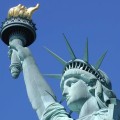 Internet Censorship on the Rise
Internet Censorship on the Rise
Free speech on the internet continues to take a pounding on several key fronts.
Under pressure from heavy handed governments abroad and threats of lawsuits and left wing agitation in the U.S., the wide-open, free-wheeling character of the internet may see its days numbered.
Twitter, the source for very short comments and observations, is the latest battleground. The Daily Signal reports that a so-called “Trust and Safety Council,” containing left-wing groups with a history of endorsing political correctness and opposing free speech, is preparing to decide how to police what is allowed to be on and what will be forbidden on Twitter.
Self-censorship by internet forums is the new wave for blocking freedom of expression in cyberspace.
Breitbart reports that the German government is demanding that Google, Facebook and Twitter remove what it considers anti-immigrant “hate speech.” Of course, there was no precise definition of hate speech, leaving almost all comments opposed to the governments’ policies subject to censorship—exactly the result Berlin wanted.
The internet giants caved in, agreeing to delete any objected-to material within a day after a request to do so was delivered.
“The German government’s demand that social media giants Google, Facebook and Twitter remove what it calls anti-migrant ‘hate speech’ is having its first real test in the wake of the sickening sex attacks in Cologne over New Year’s Eve.”
Breitbart notes that the outlets agreed to apply domestic laws, rather than their own corporate policies, to reviews of posts, and already users in Germany are expressing disgust at the policy which came straight from German Chancellor Angela Merkel’s office.”
Organizations such as the Gatestone Institute, which reports extensively on immigration issues, may be particularly hard hit.
“With Gatestone’s commitment to educating readers about what the media do not want them to know, however unpleasant these events may sound to would-be censors, we are concerned that if we disagree with policies that Facebook believes politically correct, it may decide to censor Gatestone, or even ban it.
“In the past month, Gatestone has already felt the quiet encroachment of censorship: In one instance, a New York-based online advertising network cut us off, saying our articles dealt with ‘sensitive’ topics. These included informing the public of the recent mass-sexual assaults of thousands of women by migrants in Europe. In a second recent incident, a well-known online content-promotion company rejected all of our German-language articles, for, they said, similar reasons.
“it just so happens to turn out that, lo and behold, this idea of “racist” speech appears to include anything critical of the EU’s current catastrophic immigration policy. … In lieu of violence, speech is one of the best ways for people to vent their feelings…Just last week, reports from the Netherlands told of Dutch citizens being visited by the police and warned about posting anti-mass-immigration sentiments on Twitter and other social media.”
In the U.S., there is a legal gray area when it comes to censorship by a private corporation, as opposed to a government agency.
The First Amendment Center notes that “The Bill of Rights provides protection for individual liberty from actions by government officials. This is called the state-action doctrine. Private property is not government-owned. Restrictions on individuals’ free-speech rights on private property do not involve state action.
“However, a few states have interpreted their own state constitutions to provide even greater free-speech protection than the federal Constitution offers. For example, the New Jersey Supreme Court has ruled that individuals have free-speech rights at privately owned shopping malls. Most state supreme courts that have examined the issue have disagreed. In April 2002, the Iowa Supreme Court refused to extend its definition of public property to include large, privately owned shopping malls.”
Internet sites such as Google, Facebook, and Twitter are private, and not necessarily bound by the First Amendment. But what if the censorship on those sites is the result of government action or pressure? That is a legal dispute that needs resolution. Outside of the United States, where there are, of course, no First Amendment protections, the ability of even relatively open regimes to take action is not as restrained as it is within America.
Within the U.S., key censorship pressure comes from pressure groups. When applied to internet sites, this could result in a fracturing of sites, with progressive/left wing groups patronizing self-censored sites, and the rest of the nation clicking onto sites that may be formed to continue the tradition of free speech in cyberspace.
More overtly heavy-handed internet censorship comes from Russia, China, and some Moslem nations. North Korea is noted for almost total lack of internet access by the general population.
Organizations such as George Soros’ “Open Society Foundation” are at the forefront of pressuring governments to engage in censorship. It is their contention that free speech rights are subject to restrictions if they offend religious or ethnic groups. Frequently, their interpretation of “offensive” is less than convincing.
With the scheduled handoff of internet control from the U.S. to an international body, in accordance with President Obama’s policy, the prospects for freedom of speech in cyberspace appear deeply troubled.
Frank Vernuccio serves as editor-in-chief of the New York Analysis of Policy & Government

















Follow Us